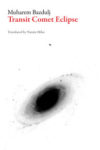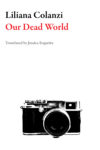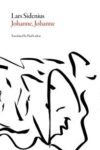by Jesse Montgomery
Vladmir Nabokov’s short story “Lance” begins with the author – eminent old crank that he was – chastising “so called science fiction” for its persistent and unwitting reproduction of the terrestrial.
In such genre hackery, he argues:
Star tsars, directors of Galactic Unions, are practically replicas of those peppy, red-haired executives in earthy earth jobs…invaders of Denebola and Spica, Virgo’s finest, bear names beginning with Mac [and] cold scientists are usually found under the Steins.
While the object of his indignation may well have been all works of science fiction, its true gripe lies with all false prophets who lay claim to representing the transcendental while peddling something wholly ho-hum and familiar1. Czech author Michal Ajvaz’ novel The Golden Age succeeds in such attempts precisely because of its ostensible ambivalence toward our own world, and its fascination with another. A brilliant record of its unnamed narrator’s encounter with a bizarre island society and a celebration of storytelling, The Golden Age is Ajvaz’ second novel to be translated into English and a tantalizing introduction to a large and untranslated body of work.
The novel begins in Prague, with our narrator’s decision to record an account of his three-year stay on the nameless tropical island. This rather assertive announcement is promptly followed by a series of qualifications, where he forswears any claim to objectivity, and begins to refer to the act of relating his adventure as his “second journey.” What follows is an intricately structured, highly readable tale of otherness, equal parts imaginative fable and metaphysical musing.
Initially, The Golden Age reads like a semi-satirical ethnography and we quickly learn all manner of things about the island and its people. For example: the islanders are quite indifferent to what we call art and prefer instead shifting lights and murmurs; their cuisine, which is never cooked, is based instead on their combination of raw ingredients which are then left “to mature, disintegrate, melt and crystallize…to dry out, go stale, curdle, ferment and swell; and their labyrinthine grammar possesses cases and structures able to indicate anything from the hue of a shadow to the fact that an action “occurred on a sandy sea-shore.”
Effusive and wildly inventive, this survey acts as the principle frame for the warren of interconnected stories and digressions that follow. Soon enough, our narrator begins to relay a story he was told on the island about a man he met in Prague who had once been told a good story about concrete language. As this story within a story (within a story) unfolds, we encounter – surprise surprise – a third story about an endlessly plumbable painting before being jerked roughly back to the initial frame of the island.
This convective pattern predominates throughout the rest of the novel and as the nested stories proliferate they begin to bleed into one another. Upon completing the novel I attempted to map out the separate narrative levels on a half-sheet of paper, but after following one narrative through its eleven levels, I carefully closed the book and tried to hide it behind my radiator. This was due in part to my admittedly Medieval belief that madness may be contagious, but also out of respect for, and enjoyment of the involute world Ajvaz has created.
The thrill of reading The Golden Age is not the thrill of solving a puzzle. The novel is complicated for the structural reasons just outlined, but because little emphasis is placed on any sort of solution there is no sense that feeling lost is a bad thing at all, and may in fact be one of the novel’s principal pleasures. Pausing near the end of the book to discuss whether the story just relayed qualifies as art, the narrator says that: “only a motionless statue that immerses itself in the current of time can address the undulations of transformation.” Once the narrative bedevilment really picks up, you may feel like that statue — stricken by, but enjoying, a certain interpretive paralysis in the face of Ajvaz’ unrelenting but not uncomfortable imagination.
The Golden Age is difficult book to reduce precisely because engaging it in discussion means repeating the pleasant experience of losing yourself in its narrative wash. As a novel it makes concrete the difficulties and joys of reading, of telling stories, and of being told. Through the sheer force of imagination Ajvaz manages to achieve that particular velocity required to slip the pull of the familiar and effect that marvelous feat of literary transportation to a world of uncompromising strangeness.
1 I submit for your consideration James Cameron’s world of Pandora, where space horses and space wolves look a lot like earth horses and earth wolves, but with an extra pair of legs.
This post may contain affiliate links.








